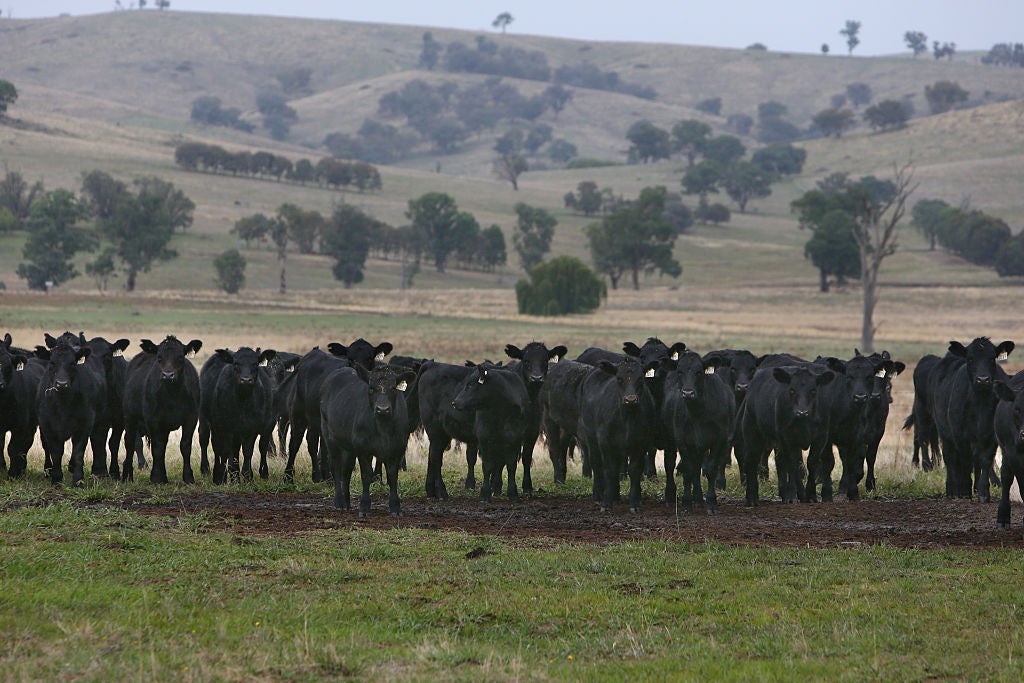
Following the country’s exit from the EU, the UK government has been negotiating – and approving – a series of new free-trade agreements. Among them is a deal with Australia, signed in December 2021, which critics have claimed poses a threat to food safety and quality in the UK.
A YouGov poll conducted in June 2021 showed that the British public was concerned about the UK-Australia trade agreement. When asked to select two main priorities for food products in a potential trade deal between the UK and Australia, 42% of respondents selected ‘protecting British farmers‘, 41% highlighted ‘ensuring high animal welfare standards’, and 34% ‘high food quality’.
‘Limiting environmental impact‘ was selected by 19% of respondents, while 16% chose ‘low prices for consumers in the UK’.
Meanwhile, Pesticide Action Network UK and Sustain, the alliance for better food and farming, have produced an exhaustive report on the potential implications of these trade agreements, including the deal with Australia, aptly titled Toxic Trade.
A risk-based or hazard-based approach to pesticides?
One of the main reasons behind the disparity in pesticide use between the UK and Australia stems from the way in which the countries approach pesticide regulation, according to the report.
In the case of the UK – which is also how the EU approaches this issue – the country follows a 'generic risk-based approach', also known as a 'hazard-based approach'.
How well do you really know your competitors?
Access the most comprehensive Company Profiles on the market, powered by GlobalData. Save hours of research. Gain competitive edge.

Thank you!
Your download email will arrive shortly
Not ready to buy yet? Download a free sample
We are confident about the unique quality of our Company Profiles. However, we want you to make the most beneficial decision for your business, so we offer a free sample that you can download by submitting the below form
By GlobalData“This means that if an active substance is judged to be intrinsically dangerous – for instance, by being able to cause cancer or persistent pollution – then it is too hazardous to be used safely and should be banned,” reads the report.
A hazard-based approach is highly effective at reducing pesticide-related harms, and it is also simple to operate, but the report states that it can also reduce the range of pesticides available to farmers.
On the other hand, Australia (along with the US) has a specific risk-based approach. This means the emphasis is placed on assessing and managing risks, as well as putting checks and measures in place to keep risks under acceptable levels.
“For example, if a pesticide is particularly harmful to human health, under a hazard-based approach it might be banned, while a risk-based approach would introduce measures such as personal protective equipment for users, or instructions not to spray near residential areas,” reads the report.
Australia approves the use of almost three times more pesticides than the UK
Due partly to the differing approaches to pesticide regulation, Australia approves the use of 8,000 pesticide products in farming, while in the UK the number is almost three times smaller, at 2,900.
For example, the Toxic Trade report notes that an Australian apple can contain 30 times the amount of buprofezin – an insect growth regulator that is classified as a possible human carcinogen – than a British apple.
Even more concerning to the authors of the report is the use of highly hazardous pesticides in Australian farming when compared with the UK. These types of pesticides, as classified by the UN’s Food and Agriculture Organisation and the World Health Organisation, are considered to be more dangerous to human health and the environment.
The Toxic Trade report points out that Australia approves the use of 144 such pesticides, while in the case of the UK the number is 73.
Meatier issues are also at stake in the Australian trade deal
Potentially harmful chemicals in fruit and vegetables are not the only point of concern within the UK, however. Meat imports from Australia have also been a contentious point for British farmers and consumers.
According to the UK’s Agriculture and Horticulture Development Board, a trade agreement with Australia will likely translate into the UK's food service industry importing high-value cuts of beef from Australia, which will probably be cheaper than domestic cuts.
It is possible that this will affect UK beef prices, as Australia can produce more meat in a more cost-effective way, due to the fact that it has lower standards for animal welfare, an issue that both farmers and organisations such as Compassion in World Farming have concerns about.
The UK National Farmers’ Union has also voiced concerns about the possible flow of substandard meat to the UK from Australia, both in terms of animal welfare standards and quality.
It seems that some concessions will be made. For example, on the topic of the use of antibiotics in farming animals in Australia, the UK Government insists that such meats will not be imported.
Although signed in December 2021, the UK's free-trade agreement with Australia has yet to come into force. The full implications to UK consumers and farmers will be felt once it starts. Only then will it be clear whether UK food standards will be affected.







